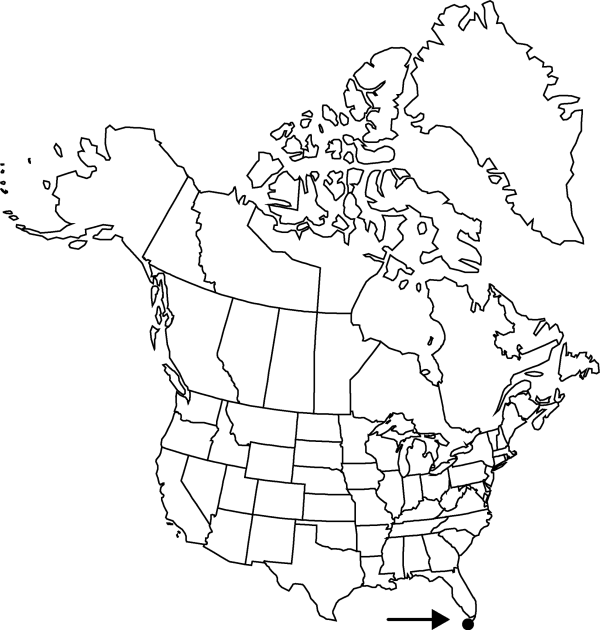Pisonia rotundata
Cat. Pl. Cub., 283. 1866.
Shrubs or small trees, densely branched, to 5 m. Stems velvety when young, glabrate later; branches ascending, unarmed. Leaf blades elliptic, 2–6 × 2–5 cm, base rounded, occasionally pubsecent along veins, apex rounded to slightly retuse. Inflorescences: staminate inflorescences compound cymose to corymbose, 2 cm diam.; pistillate densely compound cymose at anthesis, more open in age; branches divaricate or ascending; fruiting pedicel 0.5–2 cm. Perianths: perianth of staminate flowers green or white, urceolate, 2–4 mm; perianth of pistillate flowers greenish, often blushed with red, 3.5–4 mm, densely puberulent. Fruits clavate, 7–10 × 3–4 mm, sparsely puberulent between glandular ribs, glands appearing only along distal 1/3–1/2.
Phenology: Flowering mid spring.
Habitat: Hammocks, pine-scrub on limestone
Elevation: 0-10 m
Distribution

Fla., West Indies.
Discussion
Of conservation concern.
In the flora, Pisonia rotundata is restricted to Big Pine and No Name keys, Monroe County. It is part of the P. subcordata complex distributed throughout the West Indies. The plants are said to give off a resinous odor.
Selected References
None.